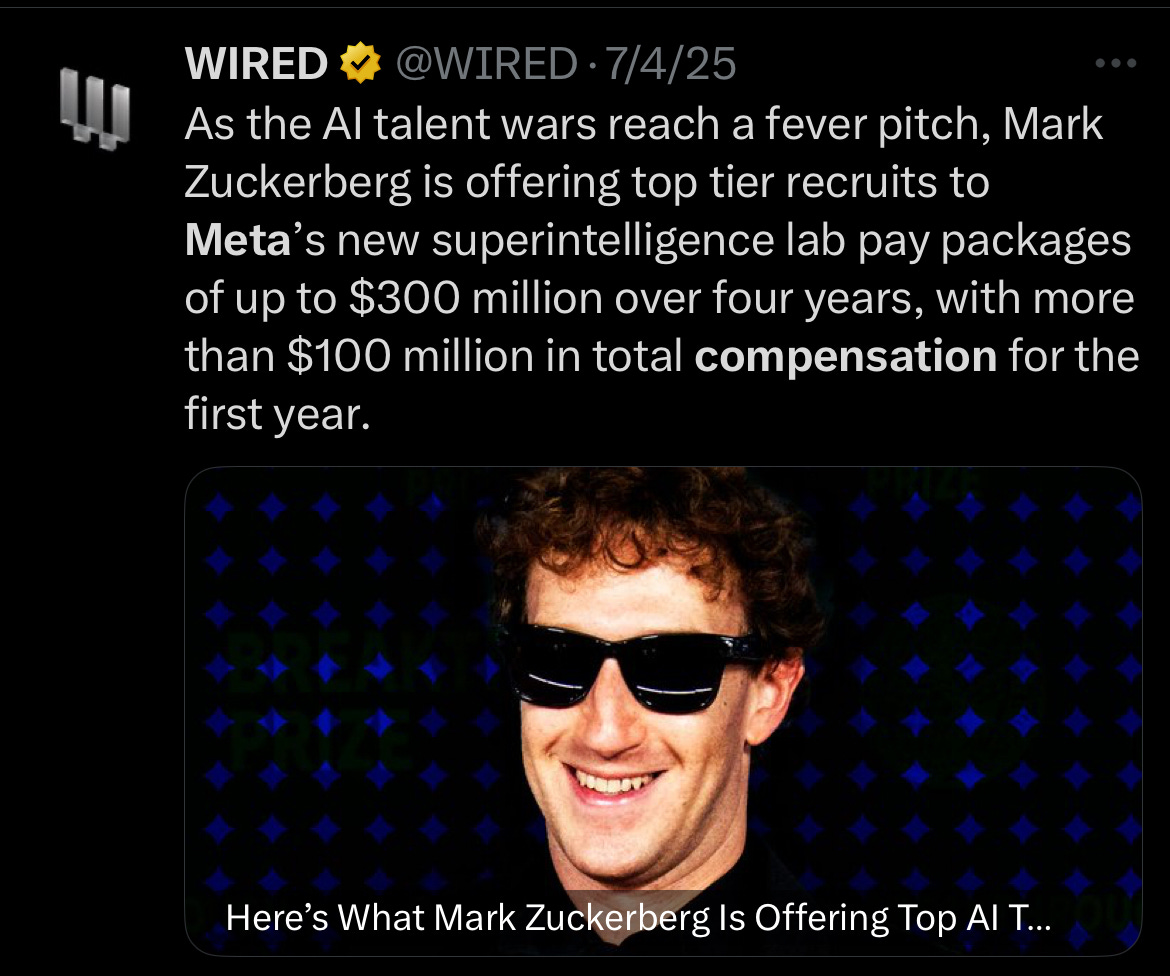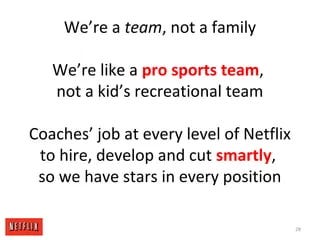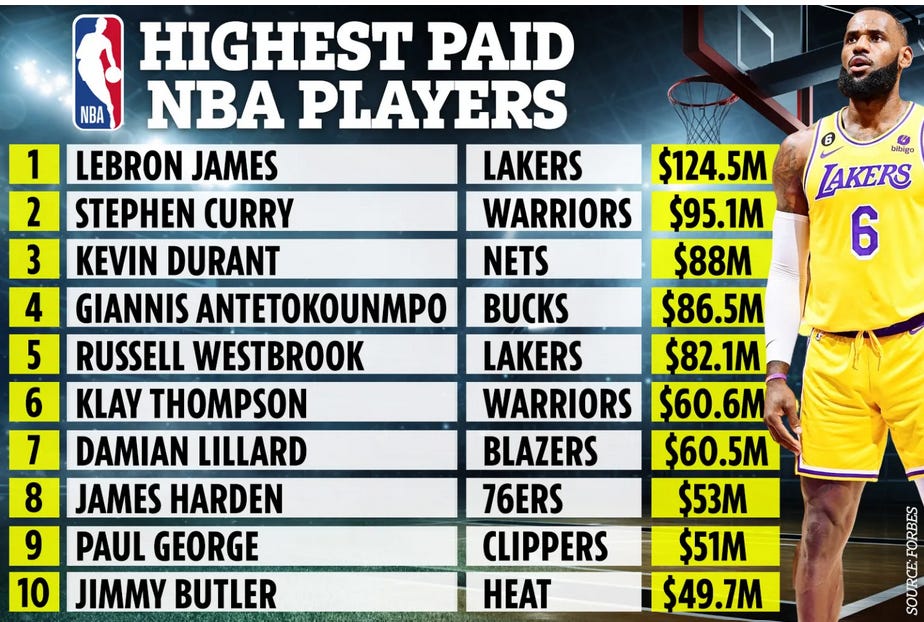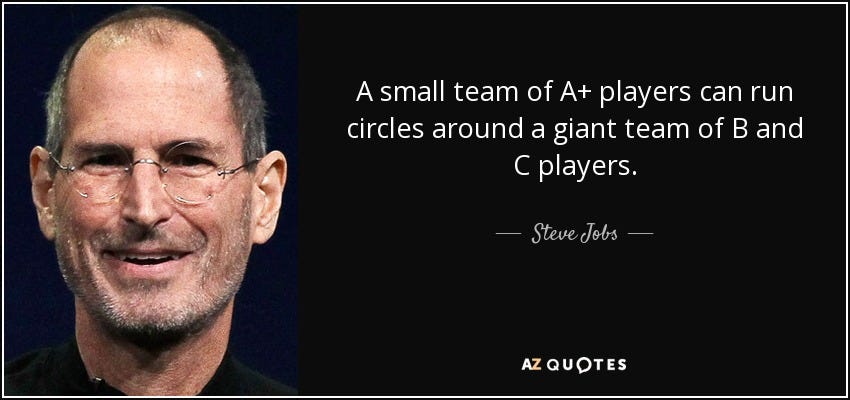A-Players Get $100M Comp? 💰
Hiring A-Players has never been more competitive and important
Today’s Sponsor: NetSuite
Demystifying AI: AI is no longer a futuristic concept; it's shaping how work gets done—in every industry from healthcare to entertainment. Glenn Hopper, an AI expert, covers the increasing importance of AI in his new guide, “Demystifying AI.”
Download it now to learn how to harness AI’s potential—no computer science or engineering background required.
$100M+ Comp Packages 👀
Google is paying $2.4B to Windsurf, a leading AI startup, primarily for its people in a license deal where they also get to use some Windsurf technology as well. It’s basically a really expensive structure to quickly get the Windsurf AI talent that Google wants without having to jump through lengthy regulatory approvals while also getting the investors and continuing employees are on board.
It is an extremely inefficient structure, but it means that Google REALLY wanted the top AI talent. And given how fast things are moving in technology they are willing to pay a huge premium to get the “A-Players” now and not wait.
We have seen similar examples with ScaleAI, Inflection, etc.
And it’s a similar story with the insane compensation packages Meta is offering as they poach AI talent from top AI labs.
Current technology is relatively easily copied, but it’s the top “A-Player” talent that will help shape the future and can create outsized returns for these companies. Yesterday, Zuck said the following in regards to paying top dollars for AI talent:
The amount that is being spent to recruit the people is actually still quite small compared to the overall investment. — Mark Zuckerberg
There is apparently a lot at stake in the race to artificial super intelligence…
Identify and Hire A-Players
Not all of us are trying to create artificial super intelligence so our pay packages are slightly smaller, but hiring A-Players is just as important to building any successful company.
Netflix got the right analogy — If a company thinks it’s a family then bad decisions will inevitably be made.
High growth companies that want to maximize success are not families. I have seen many companies operate more like a family than a pro sports team and the outcome is always sub-optimal.
And apparently we are paying the top AI researchers about as much as the top 10 NBA players so the sports analogy in this case works…
Ruthlessly recruiting and maintaining the best talent for the current needs of a company is required to maximize success. Families won’t make those types of hard decisions. Neither will a company with weak leaders.
B-players are like a virus—you let them in, and they bring all their B- and C-player friends. Before you know it, the company is overrun with mediocrity and enters an irreversible downward spiral.
Below is one of my favorite quotes about the importance of A-Players. Frank Slootman (CEO of Snowflake) uses the analogy of drivers (A-Players) versus passengers (everyone else):
In dynamic, high growth environments there is a premium on drivers. People who make things happen, who move dials, who stop at literally nothing. True drivers, the types that change history like for example the late Steve Jobs are rare, and usually are found in super high profile situations.
Passengers are an insidious threat to the vibrancy and creative force in an organization. They are the ultimate B players, not seen as bad enough to dismiss, and not good enough to retain. They are often good looking, well credentialed, well-spoken and socially adept. Nothing wrong at face value. They get along famously. But they are not close to the drive train, or where the stuff hits the fan. Task ownership is marginal.
Finding A-Players
Recruiting A-Players never stops
The search for A-Players should never stop. Zuck knew they needed to up-level their talent if they were going to win and was personally involved in the recruiting. The best leaders never stop recruiting (not matter their level).
How you do anything is how you do everything
This is a popular motivational quote but also applies in recruiting. If there is any red flags in the recruiting process on how a person acts then don’t ignore those red flags because it probably isn’t a one-off.
One bad hire can tank a culture and cause no A-players to join or stay at a company.
The brilliant jerk is almost never worth it
Hiring managers frequently fall for the brilliant jerk - “They are SO smart so we need them despite their flaws”. Huge successful companies are not made by one person (yet…) so hiring a brilliant jerk is going to cause your other A-players to leave and slowly kill the culture at your company.
A-players are usually company and stage/time specific
An A-player at one company might be a B-player at another. Or over time they can turn into a B-player at the same company.
There are a few reasons this happens:
A person’s skill set might be specific to a certain company stage. A common example of this is a VP of Sales - a VP of sales at a small, high-growth company is much different than a large established company. As a company grows that VP of Sales may no longer be an A-player for the company’s current circumstances.
Importance of domain expertise. In my humble opinion I am really good at enterprise software finance and I am a hard-worker, amazing to be around, etc, so I am clearly an A-player where I am at. BUT…if I joined John Deere as their CFO then I would definitely be a B or below player because I have no idea how that world works. While I could eventually learn it, higher growth (or at scale) companies typically don’t have the time — particularly true for leaders.
The A-player loses their excitement and motivation. This can happen for a number of reasons:
Company hired too many B and below players, which makes A-players lose excitement
Company’s future prospects deteriorate to a point where the A-players don’t believe in the company any more. This is happening a lot right now given the tough macro environment.
The A-player becomes bored/tired. This can happen for various of reasons - burnout from working too hard for too long, decides to find a new job, fear of AI taking over the world, etc…
A-players are not necessarily the smartest people but they work the hardest
The level of smarts needed depends on the role and complexity of the area. If you pay a hard worker as much as the Meta folks then they will work incredibly hard and run through walls to make things happen. The problem is if they don’t have the necessary smarts then they may run through the wrong walls.
There is a minimum bar of smarts that is needed to be an A-player but beyond that the incremental value of smarts has diminishing returns (for most roles). If you can find someone strong in both then fantastic, but if I had to choose then I will always pick the motivated, hard worker that meets the minimum smarts requirement over the relatively smarter person who is less of a hard worker.
Retaining A-Players
A-players attract A-players
The best want to work with the best and if mediocrity creeps in then the A-players will leave and no A-players will join. This will lead to a fast downward spiral for the company. I assume this is particularly true for the bigger AI companies
A-players hire A-players
This is slightly different than the previous point. A-players hire people that are better than them and are not intimated by someone great. A-players also know what other A-players look like.
B-players don’t know what great looks like or they are intimated by A-players so they don’t hire them.
If I am a B/C player I don’t want to hire an A player and have them look better than me.
Final Thoughts
If the right people are what make a successful company then the wrong people can destroy one.
All leaders need to be continually making sure they have A-players on their teams and quickly removing everyone else. Not all A-players will stay A-players or be the right people for that you need in the future (as a company’s needs change). Recruiting never ends and it is everyone’s job.
A-players create success while B-players participate in success.
Footnotes:
Download the Demystifying AI guide from NetSuite now to learn how to harness AI’s potential in finance/accounting
Get 20% off with OnlyExperts to find offshore accounting resources







I’m here for it.